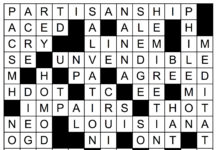During a traditional Cedar Circle ceremony on Sept. 22, the University of Waterloo formally committed to reconciliation with the surrounding Indigenous peoples.
The Cedar Circle was preceded by a sunrise ceremony held at 7 a.m. the same day at the Ceremonial Fire Grounds in United College (formerly known as St. Paul’s). Elder Myeengun Henry of the Anishinaabe tribe, who is the Faculty of Health’s Indigenous Knowledge Keeper and an elected band councillor (among several other positions in the Indigenous community), spoke at both events. He opened the sunrise ceremony by describing its importance as a time to reflect on “past lives, current situations, and our future generations.” Several other Indigenous elders as well as the president and vice-chancellor of UW, Vivek Goel, were present at the event.
After a traditional song in which the accompanying drum was meant to symbolize the “heartbeat of Mother Earth,” Henry spoke of the importance of continuing traditions such as sunrise ceremonies and naming ceremonies, particularly due to the inability of current systems to teach such practises. “We need to make sure we keep these stories true and dear to our heart so we can pass them on to future generations,” he said.
The second ceremony, the Cedar Circle at 10:30 a.m., took place at the B.C. Matthews Hall Green outside the Student Life Centre. Both the president and the vice-president and provost, James W.E. Rush, were present, along with several senior Indigenous leaders including Elder Jean Becker, the associate vice-president of Indigenous relations, and Elder William (Bill) Woodworth, the elder in residence for both UW main campus’ faculty of engineering and UW’s school of architecture in Cambridge. Waterloo MPP Catherine Fife was also present, as well as several faculty deans.
During the ceremony, President Goel spoke of the responsibility of the university in moving towards reconciliation, stating, “As educators, we have an obligation to teach our students and the public the hard truth about our country’s history and the extensive damage done to the lives, histories and spirits of Indigenous people.” He also spoke of the responsibility of the institution to create spaces to celebrate Indigenous culture and allow it to grow and thrive on campuses and the surrounding community, stating, “We have to ensure that Indigenous knowledge and ways of knowing are represented in our scholarship, in our research, and in our teachings.”
On behalf of the Indigenous peoples of UW, Henry formally asked Goel for a commitment to reconciliation, and for honesty on the matter of making a full commitment to reconciliation. “I know it’s not a small ask, but I think in this day and age it’s necessary, because the gap [between how Indigenous people live and work in comparison to settlers] is ridiculous, and I think that educational facilities can help make that change,” he said.
Goel reaffirmed his commitment, and asked for his faculty colleagues to share the responsibility of reconciliation. He acknowledged that creating an Indigenized university would take time, stating, “We know that’s more than just the things we’ve started: trying to recruit more students, hiring more staff and faculty, developing programs, it is looking at our structures, and our policies…This will not happen overnight. [Reconciliation] starts with understanding the past, it starts with building a relationship like we are doing today, and committing as we are doing today.”
Goel stated that the elders have been asked to open the upcoming annual meeting of the Board of Governors to discuss the Waterloo at 100 discussion paper. “We can’t turn back the clock, so we have to say, how do we ensure the voices of the Indigenous people are front and center in our governance processes?”
Goel described several potential methods of incorporating Indigenous knowledge into the university, such as reviewing policies, developing more Indigenous spaces for students across different faculties, and using Indigenous agricultural knowledge to grow food for the community. However, he ensured to clarify that “again, it’s not for us, as the settlers, to determine what that Indigenized campus is going to be. That’s why we’ve asked our elders to start the meeting…and if we’re really going to think about what an Indigenized campus is in 2057, we should ask them.”
Goel was also gifted a thunderbird necklace and an eagle feather, the latter of which Henry explained was not just due to his role as president of UW, but in thanks for his commitment to reconciliation and as an acknowledgement of friendship. Elder William then gifted two wampum belts to the university, which will be hung in the Senate chamber.
After the ceremony, Henry reiterated his commitment to making reconciliation happen and holding the school accountable for the promises made. “That’s why I asked for everybody’s acknowledgement of seeing [the promise of reconciliation], that’s why you do this in public…here, we have witnesses to watch that happen… And I expect [Indigenous voices on UW’s Senate] to happen very soon.”





























